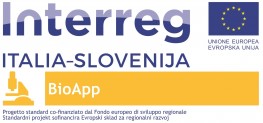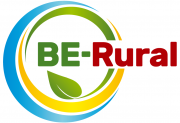BIOEASTsUP project
Project concluded

The overall objective of BIOEASTsUP project is to support the BIOEAST initiative and Action Plan for transition of 11 Central and Eastern European (CEE) to bioeconomy. The specific objectives are: SO1: To trigger strategic thinking at governmental level and transnational peer-to-peer development of national circular bioeconomy strategies in BIOEAST countries. SО2: To emphasize the role of multi-actor approach in developing new value chains to advance bioeconomies. SO3: To develop in a multi-stakeholder driven approach a consolidated BIOEAST Strategic Research and Innovation Agenda (SRIA). SO4: To set-up and maintain a macro-regional framework in support of the BIOEAST initiative and the SRIA development and sustainability. SO5: To facilitate evidence-based policy making. SO6: To increase the visibility of the bioeconomy within the quintuple helix in the BIOEAST region. BIOEASTsUP methodology was developed to support a parallel setup: the project structure and the structure of the BIOEAST Initiative. Two work packages focus on the national bioeconomy deployment (WP1, WP2), two are dedicated to the impact at the macro-regional and the EU level (WP3, WP4) whereas dissemination activity complements all the components (WP5). The work plan is as follows: WP 1: Framework for National Bioeconomy Strategies Development WP 2: Capacity building for BIOEAST stakeholders WP 3: Establishing macro-regional structures in support of the BIOEAST initiative WP 4: BIOEAST SRIA development and positioning the macro-regional economies WP 5: Communication, Dissemination and Exploitation WP 6: Project Management and Evaluation BIOEASTsUP has been initiated directly by the BIOEAST Initiative’s ministries. In total 26 ministries support the project. In addition associations, industrial chambers, innovation centres, other research organisations and NGOs have committed to the project. BIOEASTsUP will further engage all stakeholders in the bioeconomy value chain to coordinate efforts to maximize the impact.
Contacts: Magdalena Borzęcka: mborzecka@iung.pulawy.pl








